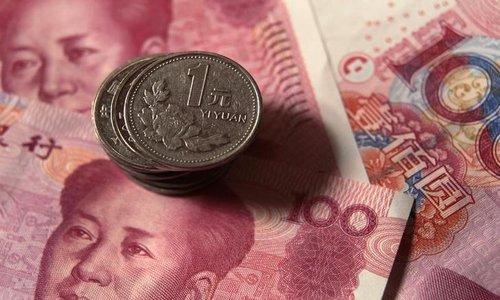
Private equity investments are continuing to flow into China with lucrative propositions, particularly in the technology, media and telecommunications (TMT) sector. The growth opportunities in the fast- expanding Chinese market are prompting foreign funds to proceed even with investments in restricted sectors despite risky legal structures, and to accept costly valuations.
“We are seeing a sustained uptick of private equity investments in [the] Chinese TMT sector,” says Joseph Chan, Shanghai-based partner at Sidley Austin, “The number of initial public offering (IPO) issues in 2014 have already surpassed the number in 2013 and 2012 combined.”
Indeed, according to PricewaterhouseCoopers’ MoneyTree China TMT Report Q3/Q4 2013, deal volume for TMT investments accounted for more than 50 percent of the total investments in China.
The highly successful IPO of e-commerce company Alibaba in the U.S. in September raised $25 billion and highlighted the extraordinary gains to be made from investing in the Chinese TMT sector. Alibaba became the world’s biggest IPO as its stocks surged 38 percent on debut.
“Alibaba IPO was an exceptional case, but otherwise the returns for investors even with small amounts have often been very attractive,” says Walker Wallace, partner at O’Melveny & Myers’ Shanghai office. Telecom, internet, life sciences and the consumer sector ranging from retail to restaurants have been very popular among private equity investors, he says.
According to Chan, the healthcare sector too is seeing increased interest by foreign investors in China and Sidley Austin is currently working on private equity deals that include secondary car sales, mobile applications, medical service clinics and cloud applications.
According to the “Preqin Special Report: Asian Private Equity,” released in September, China is currently hosting 24 percent of the Asian private equity investor universe and in 2013, more than $10 billion worth of private equity backed buyout deals were closed in Greater China.
Prospective growth opportunities remain the most important criterion for private equity investors in China, says Chan. “Potential size of the market that translates into the size or the magnitude of the opportunity, the founders or the management team of the company, and the potential exit are also very important,” he says.
Regulatory restrictions and ways to deal with them too remain the top considerations for any international private equity investor in China. The most obvious example, says Chan, is in the TMT sector which is barred for foreign investments and, therefore, alternate ways are found to make those deals possible.
The structure, based on Variable Interest Entity (VIE), is the solution for the regulatory hurdles where instead of owning direct shares in a Chinese operating company, foreign investors hold a series of contractual rights.
According to Chan, these financing contracts at the offshore level typically give foreign investors a variety of minority shareholder protections, including veto powers in major corporate decisions, nomination rights, and pre-emptive rights to subscribe additional shares in a future equity issuance. “At the onshore level, there are usually six to eight VIE agreements that typically include such agreements as an exclusive business cooperation agreement that ties the Chinese operating company to the wholly owned subsidiary of the investor,” he says.
However, the VIE structure is controversial as it is not very certain if foreign investors actually exercise effective control over the Chinese operating companies, says Chan. “Even U.S. congressional proceedings have mentioned that these types of structures are of high risk to U.S. investors as there is a question mark over their enforcement in China,” he says
According to Chan, in recent years, the enforcement in China has been spotty and, therefore, VIE structures have inherent risk for the international investors. “When the company goes public in the U.S., that risk is assumed by the investors there,” he says.
The problem is that there is no clarity by the Chinese government on these structures, even though they have been used for more than a decade, says Chan. “So far, there has been no clampdown by the Chinese authorities,” he says.
Due to these investor concerns surrounding VIE structures, very few Chinese company went public in the U.S. between 2011 and the early part of 2013, says Chan.
However, in the last 18 months, international investors have re-embraced the model and are willing to overlook the risks as the growth prospects and the potential opportunity of making substantial gains in China are good, says Chan. “Many people have quadrupled their money,” he says.
According to the PricewaterhouseCooper report, “in Q3 2013, China saw a total of 476 PE/VC investments across all industries totalling $7,531 million. This was a slight decline of 4 percent by volume and 27 percent by value compared to Q3 2012.”
Indeed, the frequent changes in regulations are the major complications faced by lawyers involved in handling private equity investment deals in China, says Wallace. These could include restriction on foreign investments in a particular sector, or on how foreign exchange can change hands, or even the restriction on the ability of Chinese investors in a company to go offshore, he says.
Tricky situations also arise owing to certain business practices that are followed in China, such as keeping unfunded obligations for a long time or operating within some areas which are classified as grey under Chinese law, says Wallace. “It may be seen by the target company as part of the way of doing business in China, but the investors don’t necessarily agree with that,” he says. Such a situation is more likely to happen in a company that has not taken foreign investment before, he says.
Legal teams of both parties take centre stage while overcoming the hurdles and structuring the deals. From the investors’ side, a private equity transaction usually involves a deal counsel, a principal counsel, a special PRC counsel, which is usually a Chinese law firm to handle due diligence and special Chinese law issues. Furthermore, depending upon the nature of the structure of the deal there are offshore counsels with British Virgin Islands, Cayman Islands or Bermuda capabilities, he says.

Law firms also involve themselves in finding and introducing target companies to their private equity clients. But often, clients approach law firms while a deal is already being negotiated and seek help in its structuring and dealing with regulatory barriers, says Wallace.
Depending on such factors, the time involved in closing a private equity deal could vary. “If there is a foreign investor friendly structure already set up, the deal can be done very quickly in a month, otherwise it could take six months to a year from kickoff to closing,” Wallace says.
The VIE structure itself is no longer complicated to execute as the concerned parties are quite familiar with the risk and the benefits associated with it, says Wallace. “In the early years, there were long discussions over protective provisions like veto rights because Chinese entrepreneurs often felt like the investor was trying to control their company,” he says, “Often, entrepreneurs would frankly ask, ‘Are you looking to take over my company?’”
However, over the last 10 years, the situation has changed with veto rights and minority protection becoming standard terms, says Wallace. “Now the discussion is around how many more seats could be given, or which are the situations where veto rights should not apply,” he says, “It is much more nuanced.”
The negotiations between the parties are often preceded by the a well-considered exit strategy by foreign private equity investors, says Chan. “Most private equity investors target three to five years of exit period that eventually depends upon the market cycle,” he says.
IPOs in the U.S. or Hong Kong are the most preferred route for exiting a private equity deal, says Chan. “The Chinese IPO market is highly regulated and as a result, it is highly unpredictable and undependable,” he says.
Furthermore, according to Chan, most technology deals look at the U.S. because it is generally perceived to be a technology friendly market that understands the business, while Hong Kong is usually the second choice.
More importantly, for many Chinese companies that have received foreign private equity investments, it is not possible to exit through an IPO in the Chinese market. “These companies are still generating significant losses and, therefore, do not qualify for an IPO anywhere except the U.S., where there is no sustained profitability requirement,” says Chan, “In Hong Kong and China, there have to be a three-year profitable track record.”
However, according to Wallace, the future tread is still going to be much more in favour of domestic IPOs and the continued development of Chinese capital markets. “For an entrepreneur who may not speak English, it is a lot easier to deal with Chinese regulators in Chinese markets than with the American regulator or the New York Stock Exchange,” he says.
Significant distinctions exist between Chinese and Western markets, says Wallace. “The commercial standards are quite different for Silicon Valley start-ups and so are the terms that private equity investors or the venture capital investor might insist on,” he says.
It is not just foreign private equity investors, but the investors themselves who could be going domestic. “U.S. investors comprise a significant proportion of the active investors in China, but there are investors from all over the world including domestic Chinese fund managers that have grown significantly in the last five years,” says Chan.
According to the Preqin report, following the Chinese government’s effort to ease barriers to entry for domestic institutions to participate as Limited Partnerships, the number of Chinese investors has surged. “In addition to corporate investors and state-owned enterprises, Chinese insurers are an emerging pool of LPs, in response to the China Insurance Regulatory Commission’s easing of regulations to allow them to invest in domestic funds in 2010 and offshore funds in 2012,” it said.
The emergence of local investors has already contributed to a significant rise in the valuation of companies sought by foreign private equity investors, says Chan. “With excess liquidity, there is too much money chasing too few good deals,” he says, “Good deals in China are extremely competitive and quite challenging, especially in the TMT and consumer sectors.”
However, foreign investments are likely to continue with the attraction of different sectors shining and fading at different times, say Wallace. “About 10 years ago, almost all of my practice was real estate investment with clients mostly buying completed buildings and selling them later,” he says, “That business is very little today, and whatever is left is mostly development activity.”
According to Wallace, private equity investors have very smart people on board and they take big risks. “Some funds are very focused in certain areas with professionals having past experience in that particular industry,” he says, “Others are more confident that they can figure anything out and know how to tackle a good opportunity.”
With this increased competition and expensive deals, foreign investors in China have to be much more disciplined, says Chan. “If you invest in a company with 20 to 25 times multiple, it is [a] pretty high-risk proposition,” he says, “If the company goes public in Hong Kong, you are guaranteed to lose money big time.”
However, according to the Preqin report, even though the Chinese economy has slowed down, its sheer size means that capital has continued to flow. “China will remain the driving force in Asia in terms of private equity investments,” it says.




